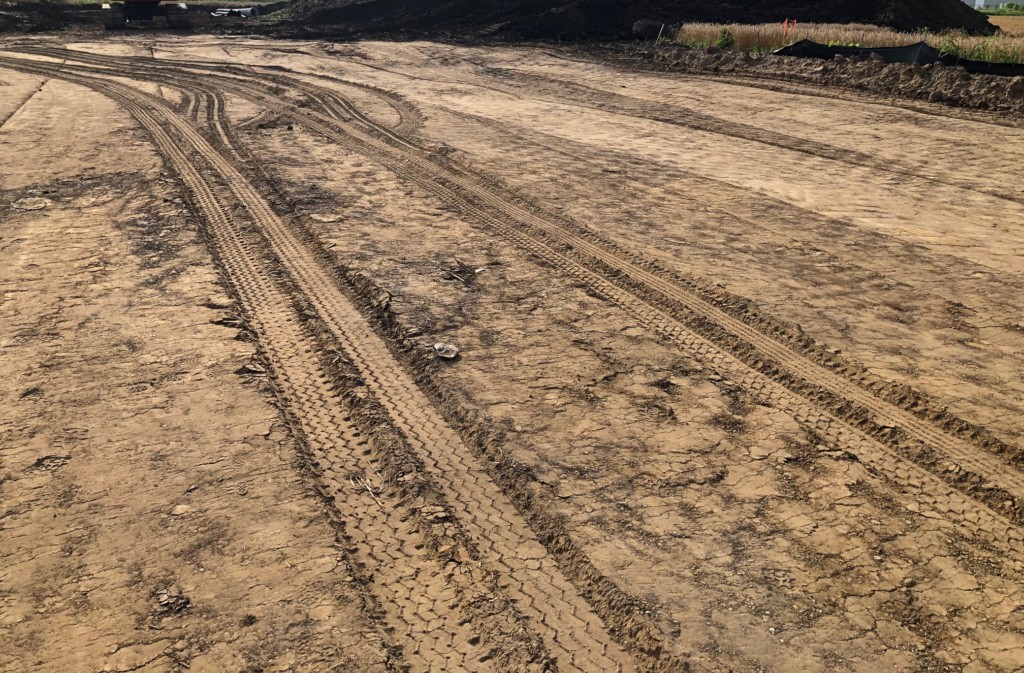
Blacks soils have a bad reputation in the construction industry. Over the years, contractors and inspectors have been trained to assume that black soils are unacceptable as structural soils. However, this is not necessarily the case. In fact, in some cases, the deemed unacceptable black soils are actually acceptable.
Why? The acceptability is related to the percentage of organic content of the soils and not the color itself. In many states the department of transportation specifies a maximum organic content of 2% to 7% depending on the state. On private projects, the maximum organic content is up to the geotechnical engineer of record and/or the project specifications.
In regards to geotechnical engineering, organic soils have a complicated and unpredictable behavior. Soils with a higher organic content have a higher compressibility, unsatisfactory strength characteristics, and higher shrinkage potential. Also, they tend to have higher moisture contents and a lower dry density.
Prior to removing black soils on a excavation project, the contractor or inspector should first review the geotechnical report. The report should be reviewed to see if unsuitable organic soils were encountered during the geotechnical exploration. In regards to topsoil soil thickness, the topsoil depths should verified on the geotechnical report make sure over stripping of topsoil does not occur. If the questionable soils were not noted and the contractor or inspector believes the soils are unsuitable, laboratory testing should be performed to determine the organic content of the questionable soils prior to remediation. The geotechnical engineer of record and/or the project specifications will determine an maximum acceptable organic content.







